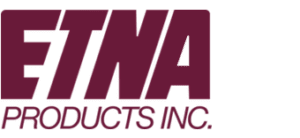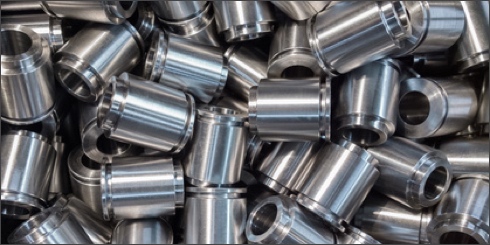AQUEOUS CLEANERS & SOLVENT BASED CLEANERS
Contact Us Today
ETNA Products, Inc. offers a full line of environmentally sensitive aqueous cleaners and solvent based cleaners which may be used to remove contaminants and residue on ferrous and non-ferrous metals. Our MASTERALL® and DAPHNE®* brands include both aqueous cleaners and solvent based cleaners that are manufactured to meet the demanding specifications of our clients and their industries. In addition, ETNA Products, Inc. offers custom formulated cleaners to meet specific customer requirements.
Our aqueous cleaners and solvent based cleaners remove materials such as residual machining lubricants and oils, grease, mill dirt, and metal oxides from the parts being cleaned. In addition, our general purpose aqueous parts cleaners are formulated with supplemental corrosion inhibitors that provide temporary rust and corrosion protection on the part prior to it entering subsequent finishing operations such as plating or painting.
Generally, finished parts manufactured with neat oils require the use of a solvent based cleaner. This is especially important for parts that include deep holes, ID threads or cross-holes. ETNA’s line of solvent based cleaners is formulated to clean parts with complex geometries and sensitive metals. It should be noted that aqueous based cleaners are generally safer to use and easier to recycle or dispose, but solvent based cleaners provide a better cleaning performance and quicker cleanup.
In order to determine if an aqueous cleaner or solvent based cleaner is the best to use, the following questions must be asked and answered:
- What type of metal will you be cleaning? Some metals may oxidize or rust easily if moisture is introduced. Given aqueous cleaners are becoming more widely used to clean parts, then formulation changes must be made to prevent rust or corrosion.
- What type of contaminants will the operator be removing from the part? It is important to compile and review all of the Safety Data Sheets (SDS’) for the various neat oils, greases and water soluble oils that must be removed from the part. The polarity and solubility of the contaminant will play a role in determining the appropriate cleaner. This information will help the operator choose the appropriate cleaner and the appropriate equipment to apply and rinse it off of the finished part.
- How will the operator keep the cleaner clean? As the cleaning operations remove the contaminants from the parts, the efficiency of the cleaner drops. The operator has to choose the appropriate oil/water separator or filtration equipment to insure that the cleaner does not become so contaminated with soils that the cleaning process is nullified.
- Are any of the metals/substrates being cleaned sensitive to heat? Generally, aqueous cleaners are heated to improve the activity of the cleaner at the interface of the part being cleaned and the actual cleaner. Some metals may start to corrode if exposed to high heats during the cleaning cycle. MASTERALL® aqueous cleaners are designed to operate at specific temperature ranges in order to provide optimum cleaning efficiency.
- How clean does the part have to be following the cleaning process? Beyond determining how clean a part has to be following the process, you need to have a procedure in place to monitor the cleanliness of the part following the cleaning process.
- What is the process that follows the cleaning process? Do the subsequent processes require that the part be dry or just clean and slightly damp?
- How do you dispose of the waste generated by the cleaning process? You have to determine the best method to recycle, re-use or the best method of disposal. Care must be taken to insure compliance with all regulations.
- For solvent based cleaners, flash point restrictions need to be considered.
- The manufacturer must know the Volatile Organic Compound (VOC) regulations affecting the location of the plant conducting cleaning operations. The cleaner selected should hopefully help the manufacturer reduce VOC’s released to the environment.
Solvent Based Cleaners
ETNA’s line of non-chlorinated solvents is based on Aliphatic Hydrocarbons which are broadly described as petroleum distillates. These aliphatic hydrocarbons are very effective on a wide range of different contaminants and they may be used on almost any metal. Our solvent based cleaners are perfect for removing grease, oil, lubricants, and other commercial contaminants from ferrous and non-ferrous metal parts. Solvent based cleaners serve as ideal substitutes for mineral spirits and may be used to clean complex parts produced on CNC machining centers or on Swiss type screw machines.
ETNA Products, Inc. provides both general purpose solvent based cleaners, as well as heavy duty solvent systems used in parts washers. It is important to know the polarity of the substance you wish to dissolve if you are selecting a solvent based cleaner. A solvent based cleaner is always ideal for cleaning polar contaminants, while hydrophilic contaminants require the use of an aqueous cleaner solution.
Not only are our solvent based cleaners adept in cleaning the toughest contaminants off of parts while removing any metal chips, they also protect against corrosion and provide temporary rust protection. Our solvent based cleaners are formulated for use by the electronic, medical, automotive, and aerospace industries.
Aqueous Cleaners
Aqueous cleaners are compounded in a concentrated form, which are then diluted with water by the customer prior to use in a given cleaning system. Dilution strengths range from 1 to 90%, but most working solutions range from five to fifteen percent (5-15%). Aqueous cleaners are formulated with wetting agents (surfactants) and additives that enhance the cleaning strength of the solution. Additionally, anti-corrosion inhibitors and other chemicals may be incorporated into the formulation to enhance corrosion protection and to clean different types of substrates. ETNA Products, Inc. manufactures aqueous cleaners with environmentally sensitive surfactants that provide a superior cleaning power while offering ease of waste treatment and recovery.
Aqueous cleaners may be classified by their pH. Acidic solutions (low pH) are effective at cleaning rust and oxides from metals that require oxide removal or brightening, but their use requires strict safety and monitoring. Conversely alkaline solutions (high pH) work well on steel, removing light smut/scale, grease and heavy oils. It is important to know the composition of the water you use to make up an alkaline cleaning solution: unfiltered water can often bring minerals that stain equipment or products. ETNA Products, Inc. works with our customers to create custom aqueous solutions based on your machining process and available water source.
Using aqueous part cleaners offer many benefits:
- Low VOCs
- Long solution life
- Biodegradable
- Non- hazardous, flammable or toxic
- Safe for metal surfaces
- Contains corrosion inhibitors and rust preventatives
ETNA Products, Inc. has general purpose and specially formulated aqueous solutions that will work with ultrasonic cleaners, high pressure spray washers, spray cabinets and immersion type parts washers.
Send us a request and we’ll quickly respond to fulfill your needs.
AQUEOUS CLEANERS
- MASTERALL® LT1151NFC
A general purpose aqueous cleaner used for removing residues from ferrous and non-ferrous metals. Designed for use at high or low temperatures.
- MASTERALL® SYN12
A general purpose aqueous cleaner used for removing residues from ferrous metals. Designed for use at high or low temperatures.
SOLVENT-BASED CLEANERS
- DAPHNE®* CLEANER MU
An isoparaffinic solvent based cleaner used for removing residues from ferrous and non-ferrous metals.
- MASTERALL® 936
A solvent based cleaner designed for use as an alternative to mineral spirits or 140°F solvent on non-ferrous metals.

